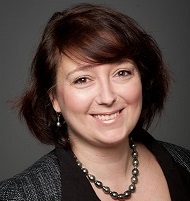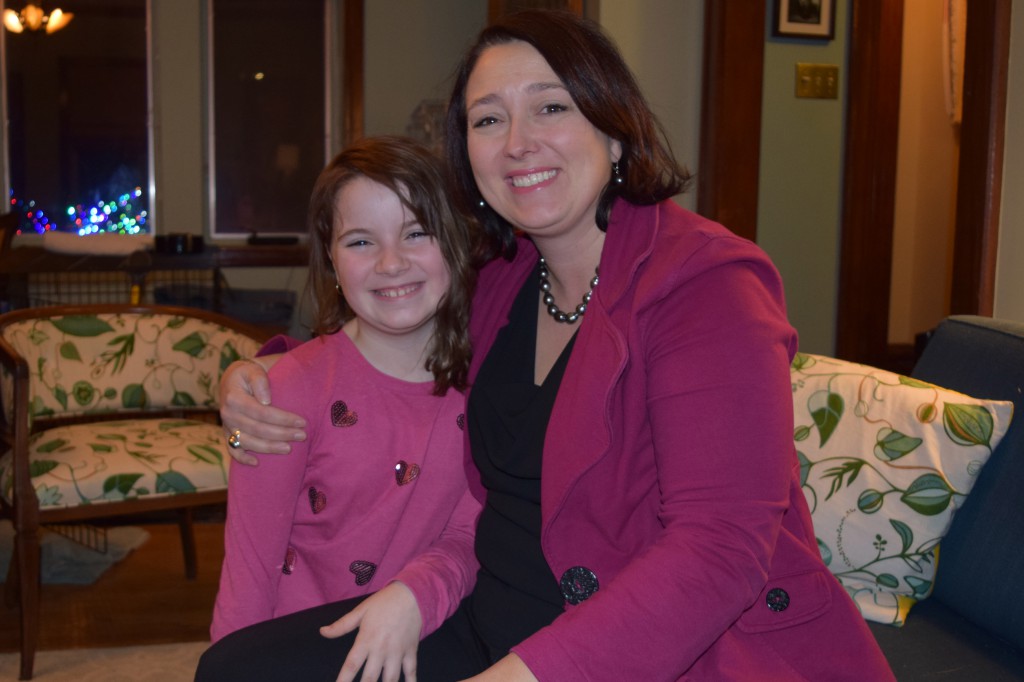In this first profile for SOAR, our six-part series of remarkable women, we chat with Dr. Kristin Baetz, a Canadian scientist and professor, who is also a mother, wife and volunteer. She is trailblazing new research methods, wants to see more young women enter science careers – and offers some straight talk on the reality of juggling a career and family.
CONNECTING THE UNCONNECTED
By Alyson Queen
When you sit down with Kristin Baetz and ask her to talk about what she does for a living, her eyes light up. She describes a very complex scientific matter this way: it’s a way of connecting the unconnected. It doesn’t take long to realize that is also how she looks at life. “If you spend your life looking at a piece of sand in the sandbox, you might miss the giant picture of what is going on around it.”
The professor, scientist and champion
The Canada Research Chair in Chemical and Functional Genomics, Kristin is a professor at the University of Ottawa in Department of Biochemistry, Microbiology and Immunology. She is also President of the Canadian Society for Molecular Biosciences, a volunteer organization of about 1200 researchers across Canada.
More recently, she was named the Director of the Ottawa Institute of Systems Biology, which is a research-intensive institution of more than 30 scientists.
“It’s a different type of science than we’ve done in the past, and we come at things from a difference angle. We look at every gene or protein in a cell, globally. We go in somewhat blind, we have no clue what we’re going to get, and we find these innovative and large leaps of knowledge by doing things in an unbiased fashion. We end up with things we’d never expect and that’s where the real innovation comes from.”
In her role as as President of the Canadian Society for Molecular Biosciences, she regularly reminds her fellow researchers of the need to promote science, wherever and whenever possible.
“We’re really trying to make the government understand the importance of funding research in Canada. It’s absolutely critical. If we don’t fund basic research, we’ll never see true innovation and knowledge.”
The journey
The road to becoming a successful independent researcher is a long and challenging one, often involving a lot of moving around and many women disappear from the field when they want to start a family.
“I think my department has done a good job of trying to bring more women into the field, but it’s still an incredible challenge because women often self-select out. We’re a long way off from true equity.”
Originally from Toronto, Kristin clearly has had the drive and motivation to pursue her passions. Her husband, Doug, has also been a strong supporter of her career and their family.
“The myth of having it all can be overwhelming and results in a lot of young female scientists saying ‘how can I have a demanding, competitive career along with a family?’
“I have yet to hear a male colleague ask these questions.”
Behind the scenes, give a nudge
Kristin is a strong advocate of women mentoring women, to work through the unique challenges for females in her field. Among other things, she mentors female postdoctoral fellows on a monthly basis at the Faculty of Medicine.
During one of these lunch gatherings, you may hear the latest excitement from the lab, but you will also hear Kristin and other women scientists discussing issues such as unconscious biases, how to juggle priorities at home and at work, how to promote their work and – sometimes the most difficult – how to promote themselves.
She also has good advice for other professors, teachers and mentors of young women entering science: give a needed nudge. “I have tried to mentor by both example and encouragement. When I see talented PhD students, I am always asking them ‘Have you thought about Postdoctoral Fellows? Have you started to write scholarship applications? Do you need help or want to discuss what you are doing next?’”
Family first
Kristin is a driven individual, and she makes it crystal clear that she has a very important role outside of the lab. Her family comes first.
“I never shy away from letting my trainees and colleagues know that I have other responsibilities – my family. When I need to leave to pick up a sick kid or take time off to volunteer, I make a point of advertising this.”
Her comments are indicative that the workplace, at least hers, is changing. Technology has a role, yes, in terms of being connected from anywhere, anytime. But there is a bigger movement at play. Women like Kristin have influence in senior roles in science. They are willing to walk the talk on family and career and in turn are empowering others to have far more flexibility than ever before.
“One of the main reasons we hear of females dropping out of science at the highest levels is because of the perception that one cannot have a family. In fact, one of the greatest benefits of being a professor is that I don’t need to be tied to a desk 9-5. More people need to know that you can do this job and still have children and be actively involved in their lives.”
Her advice to young women? Go for it.
When Kristin speaks about her career, the conversation is sparked with passion and conviction. She is doing what she loves. With a Bachelor of Science from Queen’s University, a PhD from the University of Toronto and a Postdoctoral Fellowship from the University of British Columbia, she has worked incredibly hard to arrive where she is today.
Now, she readily admits that it isn’t an easy field, especially for women. But that doesn’t mean she wants women to shy away from science. In fact, it’s the opposite. She wants to see more young women and girls enter STEM (science, technology, engineering and mathematics) careers.
“Being a scientist is an amazing and creative career. You never do the same thing twice in a day. I really hope more girls continue on and pursue it.”
Encouragement from Kristin and others like her is seriously needed. According to a Statistics Canada Report in 2013, young women are less likely than their male counterparts to choose a STEM career, regardless of mathematical ability. Currently, women account for 39% of all STEM graduates. “My advice is always to go for it and do not limit yourself. You can always find ways to make things work. It may not be Martha Stewart perfect, but life isn’t perfect.”
When you ask how she manages to juggle all of the pieces of her full life, as a scientist and professor, mother to Duncan (11) and Isla (8), wife and community volunteer, she sums it up with a chuckle.
“Life is chaotic. But in a good way.”



